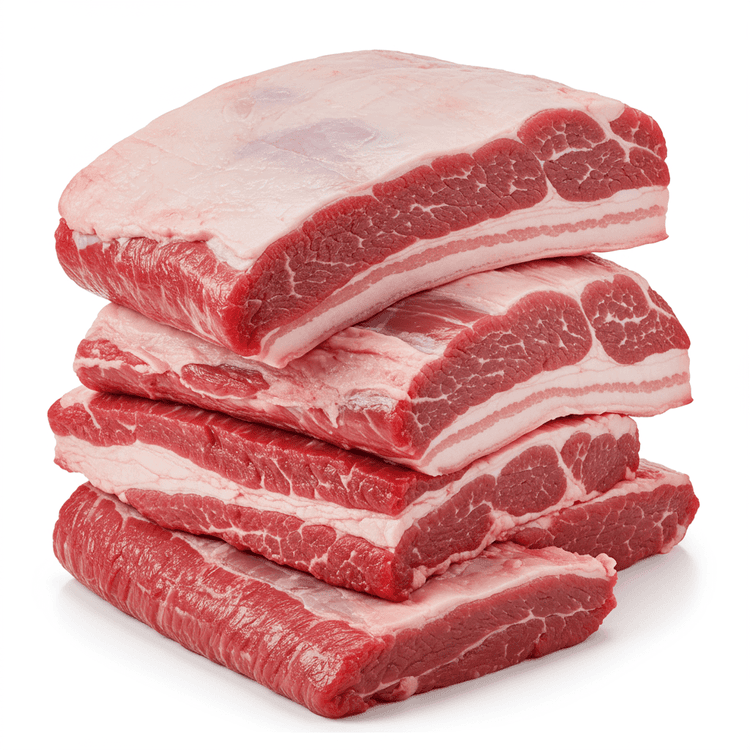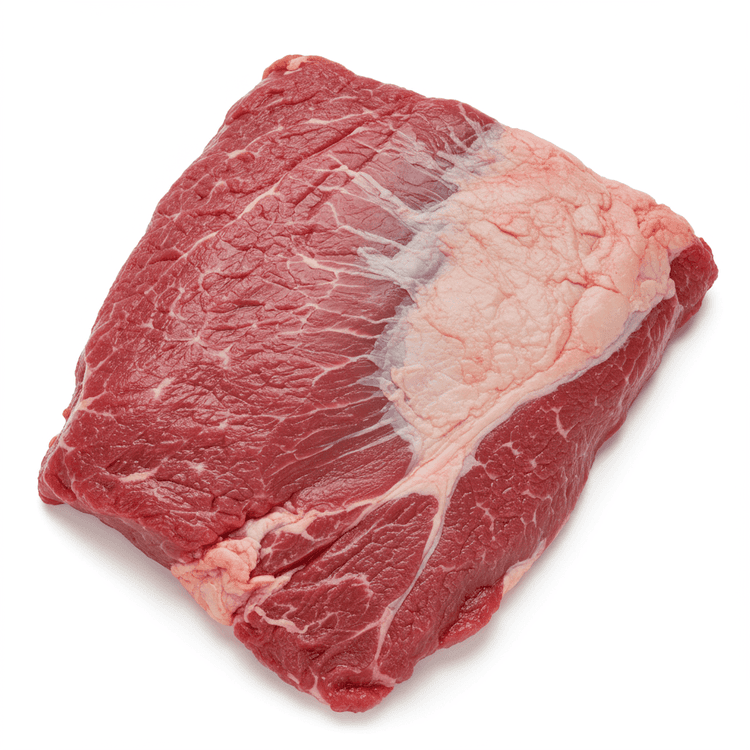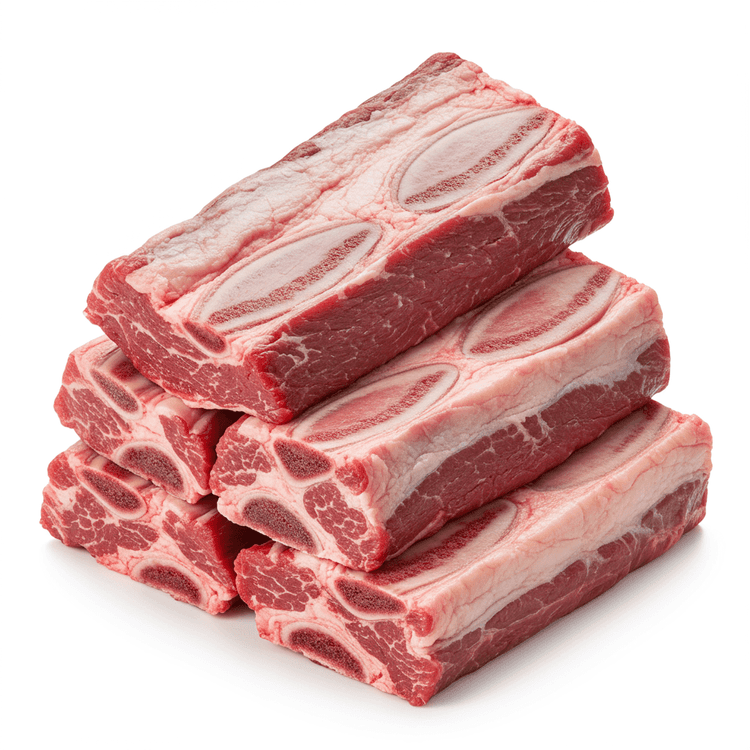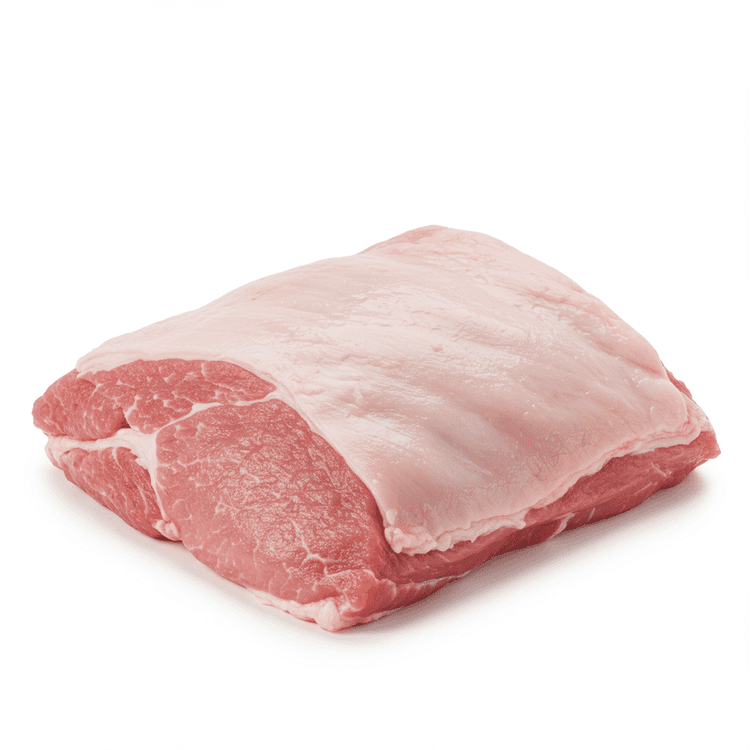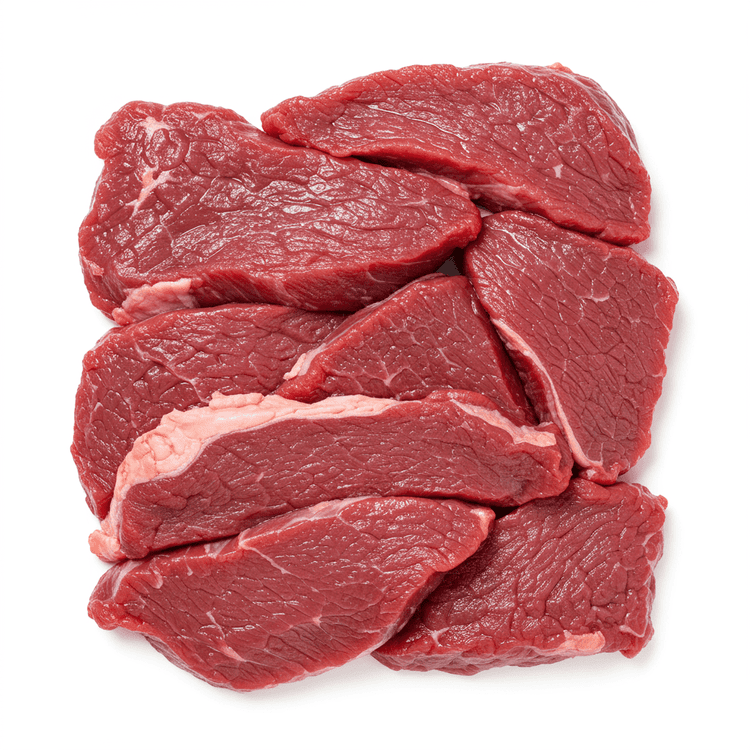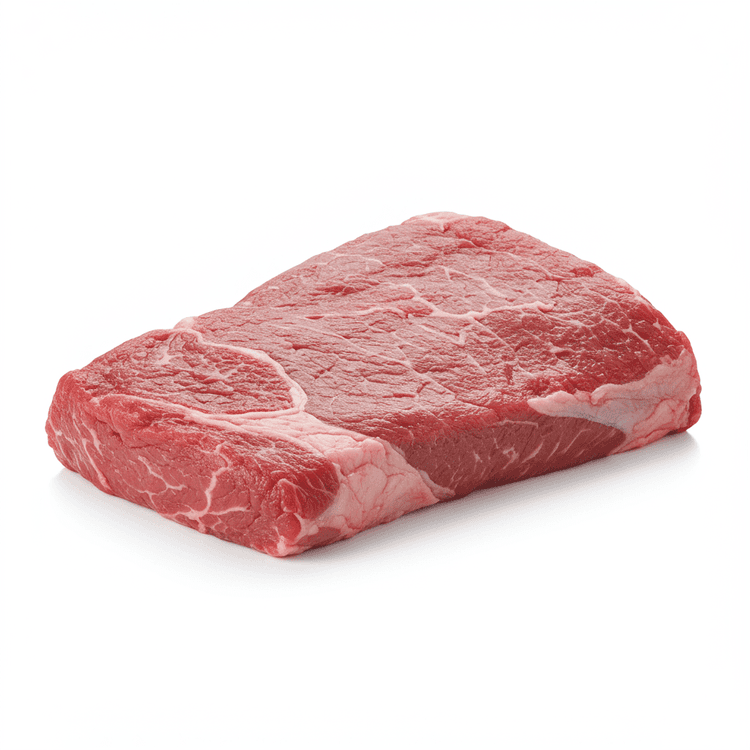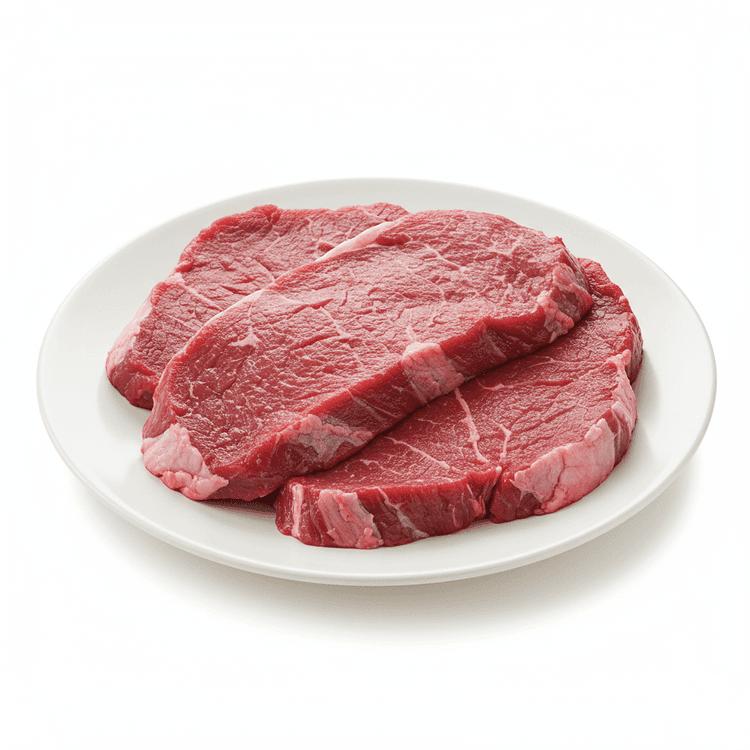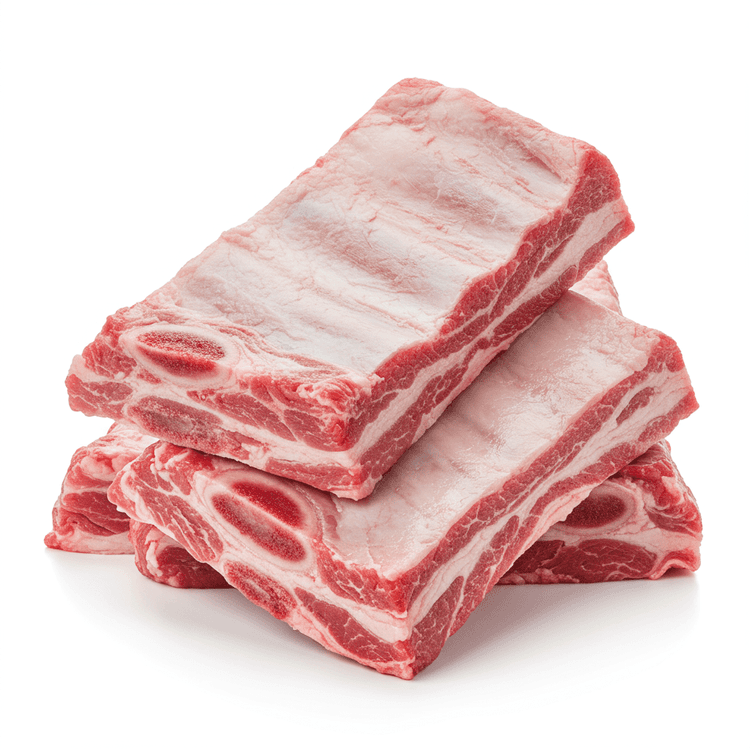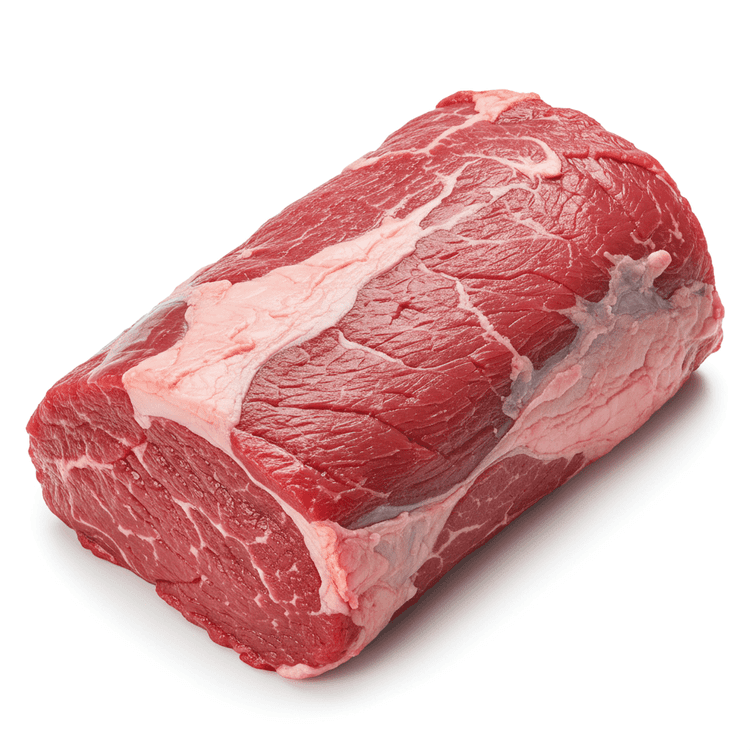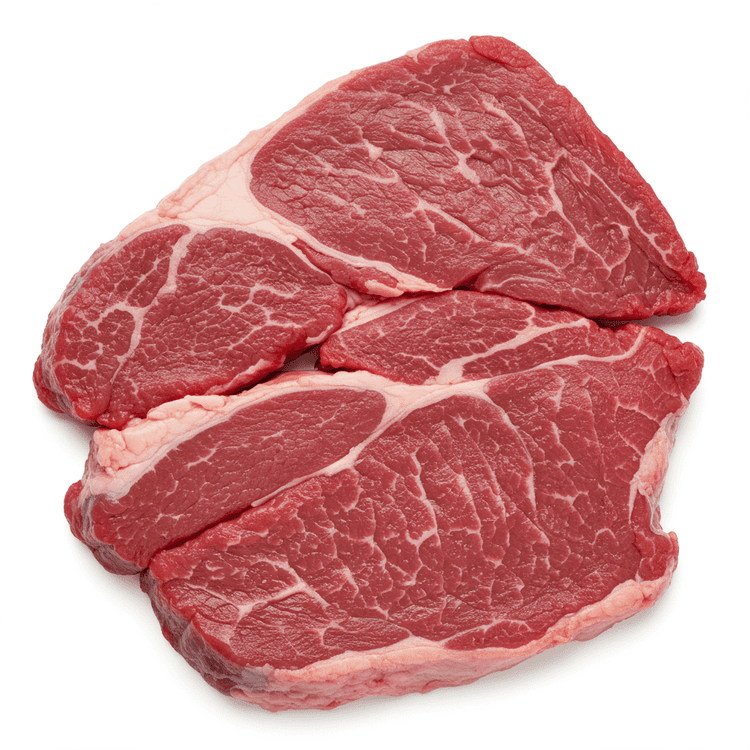
Beef Brisket
Beef brisket is a flavorful and relatively tough cut of meat from the breast or lower chest of beef cattle. Known for its rich, beefy taste, brisket features a significant amount of connective tissue, which, when cooked low and slow, breaks down into gelatin, resulting in a tender and incredibly juicy eating experience. A properly cooked beef brisket boasts a deep smoky flavor and a melt-in-your-mouth texture. Raw brisket typically appears as a large, thick cut of beef with a generous fat cap. Find high-quality beef brisket for smoking, braising, or making delicious barbecue.
Common Uses
- Brisket is slow-smoked to create authentic Texas-style barbecue. The low and slow cooking process renders the fat and tenderizes the meat, yielding a smoky and flavorful result that's perfect for sandwiches or enjoying on its own.
- Brisket is braised in flavorful liquids like wine, beer, or broth for pot roast or other hearty dishes. Braising transforms the tough cut into a tender and succulent meal.
- Brisket can be used to make delicious and hearty stews. Cut the brisket into smaller pieces and simmer with vegetables and broth for a comforting and flavorful stew.
- Brisket is cured and used to make pastrami. The curing process and smoking impart a unique flavor and texture to the meat.
- Brisket can be ground and used in burger blends to add a rich, beefy flavor and high fat content for juicy and flavorful burgers. The brisket adds depth to ground beef blends.
- Brisket can be pressure-cooked to significantly reduce cooking time while still achieving a tender result. Pressure cooking is a faster alternative to smoking or braising.
Nutrition (per serving)
Nutrition (per serving)
Calories
278.0kcal (13.9%)
Protein
29.3g (58.6%)
Carbs
0.0g
Sugars
0.0g
Healthy Fat
8.3g
Unhealthy Fat
8.1g
% Daily Value based on a 2000 calorie diet
Nutrition (per serving)
Calories
278.0kcal (13.9%)
Protein
29.3g (58.6%)
Carbs
0.0g
Sugars
0.0g
Healthy Fat
8.3g
Unhealthy Fat
8.1g
% Daily Value based on a 2000 calorie diet
Health Benefits
- Rich source of protein, essential for muscle building and repair.
- Contains iron, vital for red blood cell production and preventing anemia.
- Provides zinc, which supports immune function and wound healing.
- Offers B vitamins, crucial for energy metabolism and nerve function.
- Contains selenium, an antioxidant that protects cells from damage.
Substitutes
Chefadora AI is here.
Experience smarter, stress-free cooking.
Storage Tips
To maintain the quality of beef brisket, proper storage is essential. For short-term storage (1-2 days), wrap the brisket tightly in plastic wrap or butcher paper and refrigerate it at 40°F (4°C) or below. For longer storage (several months), freeze the brisket. Wrap it tightly in freezer paper or place it in a freezer bag, removing as much air as possible to prevent freezer burn. Thaw frozen brisket in the refrigerator before cooking for optimal results.
Marnirni-apinthi Building, Lot Fourteen,
North Terrace, Adelaide, South Australia, 5000
Australia

